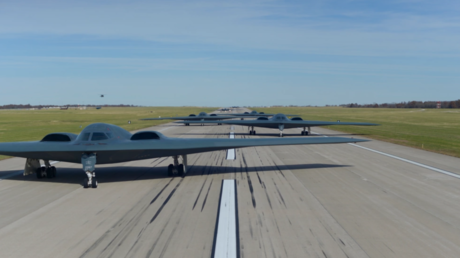Alice Stapleton is a UK-based career change coach, coach supervisor, and podcast host of The Career Change Diaries.’
Courtesy of Alice Stapleton
Alice Stapleton is a UK-based career change coach who works with both Gen Z clients and millennials.Stapleton told Business Insider that Gen Z workers are much more focused on flexibility and impact.Millennials, meanwhile, prioritize work-life balance and career progression, she said.
This as-told-to essay is based on a conversation with Alice Stapleton, a 41-year-old UK-based career change coach and host of The Career Change Diaries podcast.
I’m a career change coach who predominantly works with people in their twenties, thirties, and early forties. I’ve done that for about 13 years. In the last six years I’ve focused specifically on career change and helping people who have fallen into a career they don’t want to do anymore.
I’m a career changer myself. I originally trained as a probation officer. But six months in, I thought: “I certainly don’t want to do this for the rest of my life.”
I have between 10 and 20 clients at a time.
My days are made up of three to four Zoom calls where I’m coaching each of those individuals through a 12-session program to fit what serves them best.
Up front, I charge £2750. Then there are four monthly payments of £750. If they pay the upfront fee within three days of an introductory session, they get a 10% discount. That price reflects the comprehensiveness of the program and the length of time we often work together.
Gen Z is making its mark on the workplace.
Maskot/Getty Images
My clients are from a variety of professional backgrounds.
What they all have in common is that when they finished their education they fell into a career influenced by what they thought looked good on paper or what their parents would approve of or perhaps they just took the first thing that was offered to them.
Anywhere from two to five to seven years later, they come to me and say: “I’m not entirely sure how I ended up on this path.”
They’re not sure what it is they want to do or how to step out of their current comfort zone. That can feel quite challenging. They often describe themselves as feeling quite lost, quite stuck, quite sad, and overwhelmed by the whole heap of options.
In our work together, we follow a framework that helps them understand what they want and need from life and work and then create an action plan to make it happen.
Millennials and Gen Z share some common desires for their workplaces — as well as major differences.
I think some of those differences are reflective of the stage of life people are in as opposed to their generation.
But what I have noticed in my work is that Gen Z, considering they are early in their lives, are quite entrepreneurial. They’re independent in the way they work and are looking for reasonable amounts of flexibility.
I think that’s why they have this attraction to an entrepreneurial lifestyle and way of working. If they are working for an organization, they want to be fairly autonomous and independent in how they work and where they work and when they work.
I think millennials have that same desire, but they trend more toward collaboration and a desire to be surrounded by a team.
There’s more of a pull towards stability for millennials, whether that’s working for an organization that’s a bit more established or whether that’s around securing financial stability because they have mortgages and children.
Another difference is Gen Z is very socially aware.
Millennials are too, in that they want to be doing work that matters and working toward the greater good, but I think Gen Z are just a bit more active in that pursuit. It’s almost essential that they feel they’re having an impact and making a real difference.
Another difference is Gen Z is looking for diverse workplaces, whereas I get the sense that millennials prefer to be around like-minded people.
Gen Z has a desire to break the mold, break traditional boundaries in the workplace, and really push for change. They’re constantly asking why we do the things we do and seeking new ways. They’re not just accepting the status quo for no reason, which is perhaps why they have this stereotype around having high expectations of their workplace.
They don’t see a reason why things can’t change for the better. They’re holding people and organizations to high standards and have expectations driven by strong values and strong morals.
Gen Z needs to feel like they trust who they’re working for, that the culture summary on the website isn’t just for show and that it really translates to how a workplace communicates and how they treat their employees.
Millennials want a better work-life balance.
Maskot/Getty Images
Gen Z has a need for variety.
That might have something to do with them growing up with constant change and stimulation from social media and having a constant need for stimulus and variety and change and becoming bored quite easily.
Millennials have that desire for variety too, but perhaps less so. They’re more willing to sacrifice variety for priorities around work-life balance and stability and growth and development.
With millennials, there’s a real drive towards work-life balance and wanting to be able to prioritize their career and their other life goals, like their family and friends, their mental health, and their physical health. They want a very balanced approach to life and they want stability and a career progression.
The pandemic brought changes for all generations.
When COVID happened it prompted a lot of people to make a change, because suddenly the world stood still and they were really faced with what they do for a living.
People were less busy, less distracted, and faced with: “This is what I actually do for a job without the bells and whistles.”
That was really jarring. People who had been putting it off for years suddenly had the time to think about it and actually do something about it.
Since then, people have realized that work can be much more flexible.
I think Gen Z in particular are very up for the nomad lifestyle, which COVID really accentuated because we suddenly realized all these jobs that we thought we had to go into an office for were just not the case anymore.
It really changed the way that a lot of people thought about their careers.





+ There are no comments
Add yours